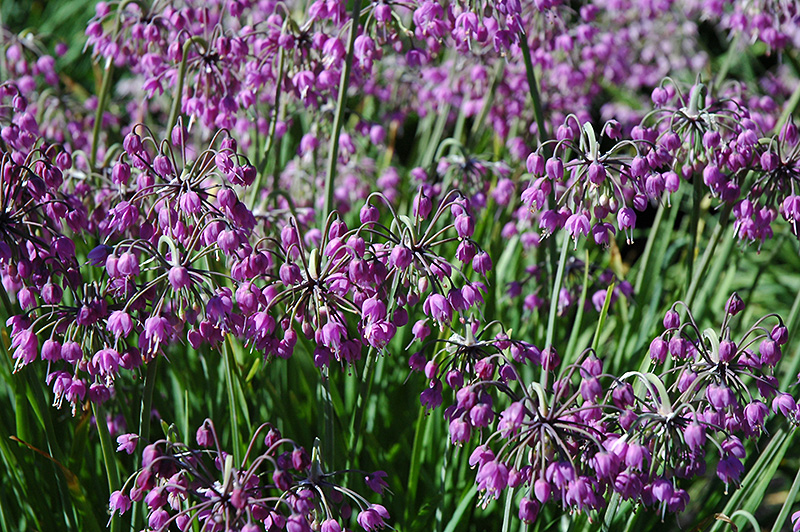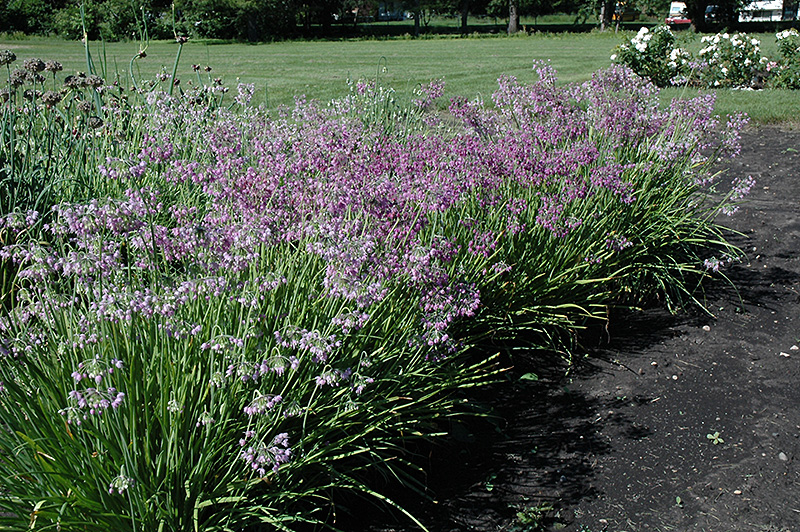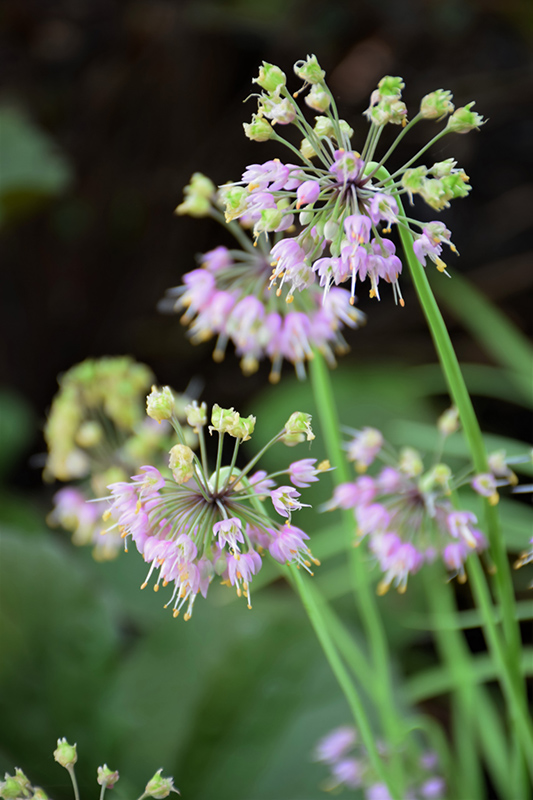Gertens Plant Finder
Plant Height: 8 inches
Flower Height: 18 inches
Spread: 12 inches
Sunlight:
![]()
Hardiness Zone: 2a
Other Names: Flowering Onion, Wild Onion
Description:
Great in Mass plantings; full sun to part shade; tolerates: Deer, Drought, Dry Soil, Shallow-Rocky Soil, Black Walnut
Ornamental Features
Nodding Pink Onion features dainty lightly-scented nodding lavender flowers at the ends of the stems from late spring to early summer. Its grassy leaves remain green in color throughout the season.
Landscape Attributes
Nodding Pink Onion is an open herbaceous perennial with an upright spreading habit of growth. Its relatively fine texture sets it apart from other garden plants with less refined foliage.
This plant will require occasional maintenance and upkeep, and should only be pruned after flowering to avoid removing any of the current season's flowers. It is a good choice for attracting butterflies to your yard, but is not particularly attractive to deer who tend to leave it alone in favor of tastier treats. It has no significant negative characteristics.
Nodding Pink Onion is recommended for the following landscape applications;
- General Garden Use
Planting & Growing
Nodding Pink Onion will grow to be about 8 inches tall at maturity extending to 18 inches tall with the flowers, with a spread of 12 inches. It grows at a medium rate, and under ideal conditions can be expected to live for approximately 5 years. As an herbaceous perennial, this plant will usually die back to the crown each winter, and will regrow from the base each spring. Be careful not to disturb the crown in late winter when it may not be readily seen! As this plant tends to go dormant in summer, it is best interplanted with late-season bloomers to hide the dying foliage.
This plant should only be grown in full sunlight. It does best in average to evenly moist conditions, but will not tolerate standing water. It is not particular as to soil type or pH, and is able to handle environmental salt. It is highly tolerant of urban pollution and will even thrive in inner city environments. This species is native to parts of North America. It can be propagated by multiplication of the underground bulbs.
Buy Now on Gertens.com:




